Trigger warning: euthanasia
A lawyer who secured exceptional euthanasia approval for a woman for the first time ever in Peru has just won another case that will allow a patient to be released from the medical care that is keeping her alive amid conscientious objections from doctors, religious traditions, and bureaucratic hurdles.
Josefina Miró Quesada Gayoso has been trailblazing the right to die with dignity in her home country of Peru.
Just two weeks ago, on Sunday, April 21, 47-year-old Ana Estrada was able to finally die peacefully on her own terms after a long and painful court battle that Gayoso led.
For the past thirty years, Estrada lived with polymyositis, condemning her to stay bedridden and requiring a ventilator to breathe.
The late psychologist had gone to court in 2016 to fight for access to euthanasia, which is completely illegal in the South American country.
It took years for Gayoso, a human rights advocate, lawyer, and former professor at the Pontifical Catholic University of Peru, to successfully help her client be released from the painful prison that was her severely sick body.
In 2022, a Peruvian judge ordered the establishment of a euthanasia protocol, which was applicable solely to Estrada.
“When I was in court, I asked for these protocols to be applicable to more cases, but the request was denied by the judge,” Gayoso told Bored Panda.
Lawyer Josefina Miró Quesada Gayoso continues to pioneer end-of-life rights in Peru
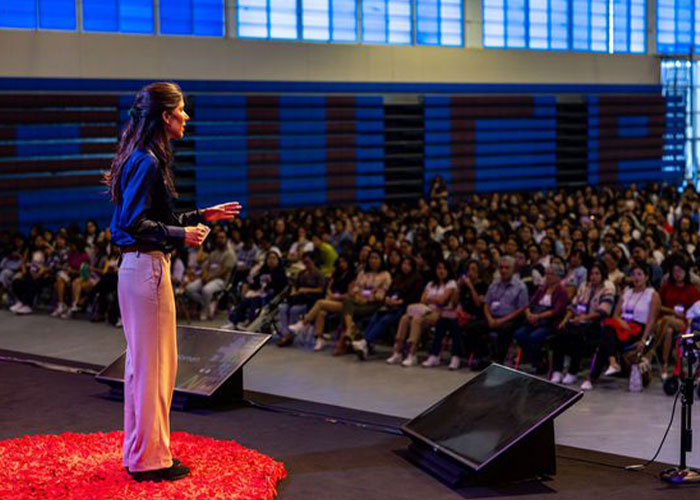
Image credits: Josefina Miró Quesada Gayoso
Under Peruvian law, assisting someone’s suicide and killing a terminally ill patient is punishable with prison time.
While the Supreme Court ruling did not legalize assisted dying, it exempted the doctor who supplied the drug to end Estrada’s life from any punishment, Reuters reported on April 23.
Gayoso revealed that one of the reasons it took two years for Estrada to finally be euthanized was because setting up the protocol was a time-consuming mission, which involved creating an interdisciplinary commission that included psychologists, doctors, and more members with different types of expertise.
“There were so many delays,” the human rights activist said, describing protocols that were completely deconstructed point by point and scrutinized.
Upon winning Estrada’s euthanasia case, a judge was assigned to guarantee that the sentence was fully fulfilled.
Part of the obligation within the sentence was to create the interdisciplinary commission, mandated to be formed by Peruvian Social Health Security (EsSalud) before being reviewed and approved by the Peruvian Ministry of Health (Minsa).
EsSalud took an extensive amount of time to establish this commission, exceeding the expected timeline outlined in the sentence, prompting the judge overseeing compliance to impose a series of fines and sanctions.
Additionally, some amendments had to be applied to the protocols, which furthered the euthanasia setbacks, including removing a mandatory second psychological evaluation.
Gayoso recently won another case, allowing a patient to choose to end medical care amid opposition
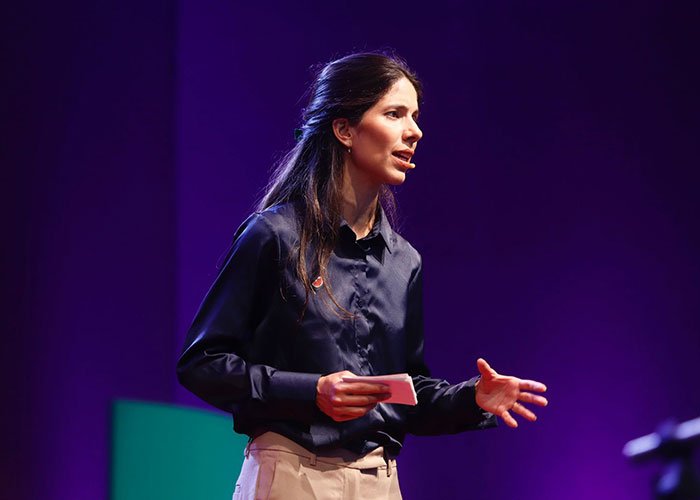
Image credits: Josefina Miró Quesada Gayoso
“We thought this was not necessary because [Estrada] already had a psychological evaluation,” Gayoso said.
Estrada’s euthanasia final protocol was ready within a year. However, worries regarding the assigned doctor involved in her unique medical procedure arose amid conscientious objections.
“We wanted to secure a doctor that had the confidence to honor and to be the one in charge of applying the law,” Gayoso said.
Throughout 2023, a year before Estrada’s euthanasia, the groundbreaking Peruvian legal team fought for their client’s right to choose the doctor that would help her die and “bring her confidence.”
“It was so important to guarantee that this was done in a rightful manner according to honesty,” the lawyer stressed.
“[The court] finally accepted our observations, but this was done in a very delayed manner,” Gayoso admitted.
Estrada spent time between January 2024 and her euthanasia in April to “reflect and organize everything so that she could die with dignity,” the visionary legal practitioner informed.
As of 2023, euthanasia is legal in Belgium, Canada, Colombia, Luxembourg, the Netherlands, New Zealand, Portugal (law not yet in force, awaiting regulation), Spain, and all six states of Australia.
Gayoso notably won a landmark euthanasia approval for Ana Estrada
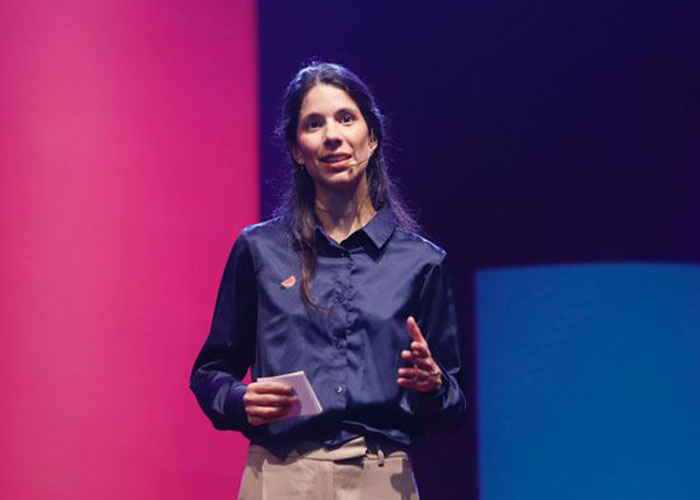
Image credits: Josefina Miró Quesada Gayoso
Euthanasia must not be confused with assisted suicide, which is legal in Austria, Belgium, Canada, Germany, Luxembourg, the Netherlands, New Zealand, Portugal, Spain, Switzerland, parts of the United States, and all six states of Australia.
According to the Maxim Institute, euthanasia is when an attending medical or nurse practitioner takes an action with the singular intention of causing a patient’s death. Generally, this is in the form of a lethal injection.
Meanwhile, assisted suicide is when a suicide is intentionally aided by the attending medical or nurse practitioner, and the person self-administers the medication. That is, the medical practitioner will prescribe a lethal drug that the patient will usually take orally.
As Estrada’s case was a first in the eyes of Peruvian law, the terms of her case were influenced by the Colombian Constitutional court, as Colombia is one of the leading countries for the legalization of euthanasia in Latin America, Gayoso explained.
In 1997, the Constitutional Court declared that euthanasia was constitutional. This left Colombia in the unusual situation of having constitutional protection for euthanasia but having criminal penalties for assisting a suicide. In 2022, it decriminalized assisted suicide, The Completed Life Initiative reported.
Despite being presented with the choice between assisted suicide and euthanasia, Estrada chose the latter as a way to cease her life.
It is important to note that Gayoso did mention the negative connotations associated with the term “assisted suicide,” which undoubtedly influenced the ultimate decision.
“[Assisted suicide] is closely linked to things related to mental health problems that would maybe portray that decision, as [people] may want [a] rationale or [to take] a very difficult time [out of context],” the lawyer explained.
Nowadays, Gayoso is fighting for María Benito’s right to die with dignity
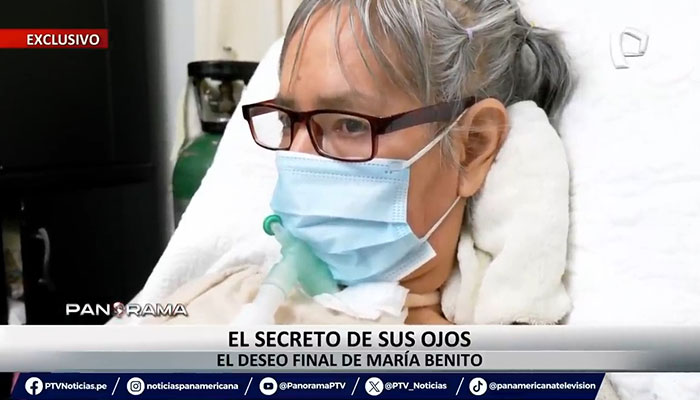
Image credits: infobae
And on the subject of appropriate terms, Gayoso argued against “suicide,” stating: “We prefer to call it right to die with dignity because that means actually giving the person the power to select the terms in which a person wants to die, and it’s more about the freedom knowing that that freedom is a consequence of an informed decision.”
Nowadays, Gayoso is fighting for María Benito’s right to die with dignity after winning over a Peruvian court. She is now trying to get doctors to finally pull the plug.
Benito suffers from amyotrophic lateral sclerosis, better known as ALS. According to Mayo Clinic, it is a nervous system disease that affects nerve cells in the brain and spinal cord.
ALS causes loss of muscle control and gets worse over time, eventually leaving an affected person paralyzed and unable to speak, eat, and breathe. There is no cure for this fatal disease.
Amid Peru’s values being influenced by its heavily present Roman Catholic Church, Benito’s doctors have refused to turn off her ventilator, which is keeping her alive, despite a court ruling in favor of her wish and Gayoso’s case.
“[Benito] is asking to basically reject the treatments that maintain her [life] artificially,” the lawyer explained.
“That is absolutely legal. Every treatment has to be consented [to], and when it’s not consented [to], it should be retreated,” Gayoso added.
65-year-old Benito lost her speech six years ago, and she can now only communicate through her eyes, thanks to an eye tracker that encodes what she wants to say with the help of a keyboard, El País reported in February 2024.
Benito suffers from amyotrophic lateral sclerosis, better known as ALS
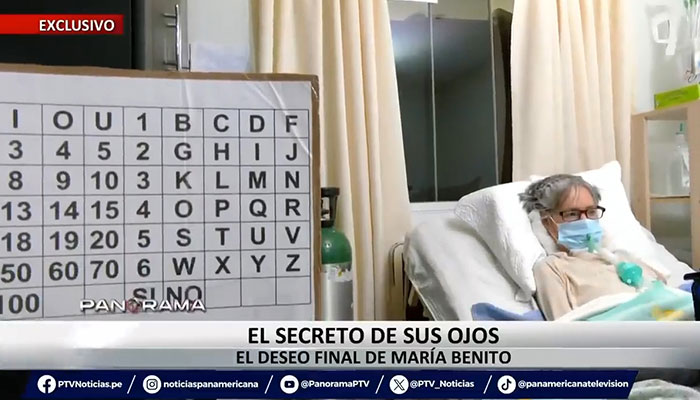
Image credits: infobae
“She lives with three tubes: a cannula placed into her trachea to provide an airway and another directly into her bladder so she can urinate,” the Spanish media indicated.
“The only thing that ALS has not taken away from her has been the fullness of her consciousness. And it is with this remaining spark of freedom that María Benito has taken on the noblest of her struggles: to end her suffering and leave in peace,” the outlet wrote.
New problems have arisen in Benito’s case, as the court ruling indicated that the only entity authorized to disconnect her ventilators was EsSalud.
However, the head of the Intermediate Care Unit of the Edgardo Rebagliati Martins Hospital, Luis Carrillo Velásquez, indicated that no doctor in his area could carry it out because everyone opposed it.
“We’re [encountering] some hurdles in finding a doctor [to disconnect Benito’s ventilator] because many doctors are alleging conscientious objections,” Gayoso told Bored Panda.
EsSalud’s president, María Aguilar, affirmed their commitment to honoring the patient’s wishes, El País reported.
“Yesterday we won María Benito’s case and I still can’t believe it,” Gayoso wrote on her LinkedIn page, at the end of January.
“This ruling sets a very important precedent by ratifying the right of every person to refuse medical treatment that they do not want, whether or not they are on [life support].”
She concluded: “María is finally free to decide and EsSalud must respect her decision.”
Nevertheless, amid the conflicting stances within the healthcare system, the presiding judge reportedly mandated through a resolution that EsSalud must adhere to the court’s decision, granting a five-day deadline.
On Monday, April 22, a judge gave EsSalud a period of 15 days to respect Benito’s right to a dignified death, according to InfoBae. Excluding holidays and weekends, the deadline expires on May 15.
As of Wednesday, May 1, Benito is still alive and “still suffering,” Gayoso said.
“I think this is a battle that is changing the way that we define self-determination over a dying body,” Gayoso told Bored Panda.
Highlighting the principles of respecting people’s religious beliefs, the innovative advocate underlined a “peaceful and compassionate God, who believes in people’s health and overall believes that people should not be suffering and that every person is the owner of their own life.”
The post Exclusive: Lawyer Opens Up About Historic Win Allowing Suffering Woman’s Euthanasia first appeared on Bored Panda.











 English (US) ·
English (US) ·